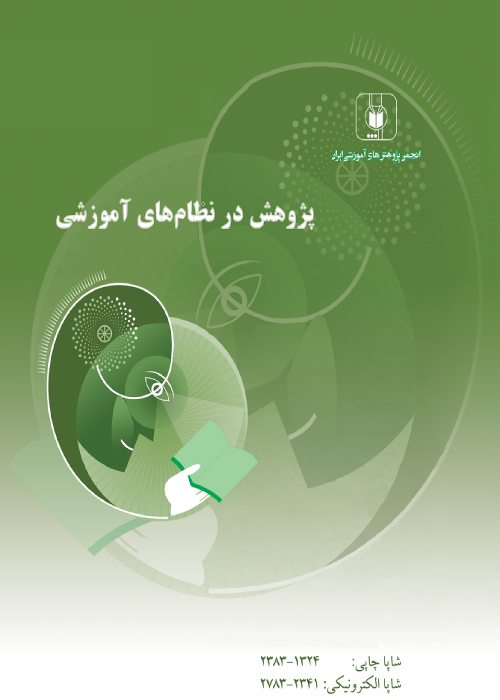Testing the structural relationships between academic self-efficacy, attributional styles, coping strategies, achievement emotions and academic procrastination in university students
Author(s):
Abstract:
Objective
The purpose of this study was testing the structural relationships between academic self-efficacy, attributional patterns, coping strategies, achievement emotions and students’ academic procrastination of university students. Method
397 students)172 boys and 225 girls(who chosen by a multiple stage sampling method, answered to the Academic Procrastination Style-Student, the Ways of Coping Strategies, the Academic SelfEfficacy Questionniare, the Attribution Styles Questionnaire and the Achievement Emotion Questionnaire. In this study structural equation modeling method was used in order to test structural relations hypothesized model. Results
Results of testing structural relations among multiple information sources in different patterns showed academic self-efficacy and adaptive coping guidelines and positive achievement emotions had a positive and meaningful relation, but this relation for academic self-efficacy and non-adaptive coping guidelines and academic procrastination was negative and meaningful. The results also showed a positive and meaningful relation between adaptive coping guidelines and positive achievement emotions, and a negative and meaningful one between positive achievement emotions and academic procrastination. The relation between non-adaptive coping guidelines and negative achievement emotions was positive and meaningful, but the relation between negative achievement emotions and academic procrastination was positive and meaningful. Besides, the relation between attributional styles in positive situations and academic procrastination was negative and, the relation between attributional styles in negative situations and academic procrastination was negative and meaningful. Finally, the results showed that 50 to 68 percent of academic procrastination variance was calculated through different informational sources in hypothesized patterns. Conclusion
In sum, the results showed that for prediction of the academic procrastination among university students by self-efficacy theory and attribution theory, constructs such as academic emotions and coping strategies have a critical role.Keywords:
Language:
Persian
Published:
Quarterly Journal of Research in Educational Systems, Volume:9 Issue: 30, 2015
Page:
63
magiran.com/p1481417
دانلود و مطالعه متن این مقاله با یکی از روشهای زیر امکان پذیر است:
اشتراک شخصی
با عضویت و پرداخت آنلاین حق اشتراک یکساله به مبلغ 1,390,000ريال میتوانید 70 عنوان مطلب دانلود کنید!
اشتراک سازمانی
به کتابخانه دانشگاه یا محل کار خود پیشنهاد کنید تا اشتراک سازمانی این پایگاه را برای دسترسی نامحدود همه کاربران به متن مطالب تهیه نمایند!
توجه!
- حق عضویت دریافتی صرف حمایت از نشریات عضو و نگهداری، تکمیل و توسعه مگیران میشود.
- پرداخت حق اشتراک و دانلود مقالات اجازه بازنشر آن در سایر رسانههای چاپی و دیجیتال را به کاربر نمیدهد.
In order to view content subscription is required
Personal subscription
Subscribe magiran.com for 70 € euros via PayPal and download 70 articles during a year.
Organization subscription
Please contact us to subscribe your university or library for unlimited access!



